September 23, 2025
Sustainable Design Collective hosts ’speed dating’ style talks
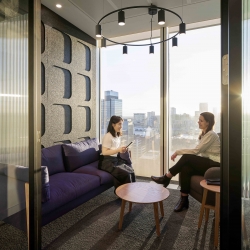 Members of the Sustainable Design Collective including sustainability specialists from leading workplace design practices, such as Perkins & Will, TP Bennett (main image), BDP, JRA, Overbury and Siren Design, are offering the opportunity to join ’speed dating’ style round table discussions. To be held on Wednesday 1st October, 4-6pm at the Crypt on the Green in Clerkenwell, manufacturers, suppliers, designers, project and facilities manager are invited to join one of the round table discussions hosted by SDC members. After 20 minutes, the whistle will blow and that’s the opportunity to change tables. Topics include: Achieving greater circularity; Understanding Supply Chains & Adding social value; Sustainability & Technology; Project Assessments. (more…)
Members of the Sustainable Design Collective including sustainability specialists from leading workplace design practices, such as Perkins & Will, TP Bennett (main image), BDP, JRA, Overbury and Siren Design, are offering the opportunity to join ’speed dating’ style round table discussions. To be held on Wednesday 1st October, 4-6pm at the Crypt on the Green in Clerkenwell, manufacturers, suppliers, designers, project and facilities manager are invited to join one of the round table discussions hosted by SDC members. After 20 minutes, the whistle will blow and that’s the opportunity to change tables. Topics include: Achieving greater circularity; Understanding Supply Chains & Adding social value; Sustainability & Technology; Project Assessments. (more…)







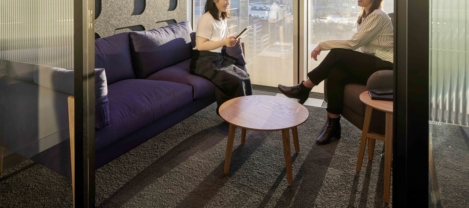


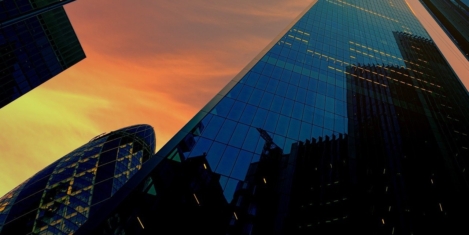
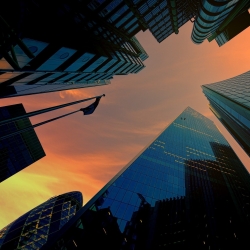 The so-called green agenda, sustainability and climate change have finally hit centre stage. Various announcements are being made by UK Government and numerous high profile figures are crying a call to action to implement carbon reduction plans now. Lord Mayor of the City of London, Alderman William Russell, stated at the
The so-called green agenda, sustainability and climate change have finally hit centre stage. Various announcements are being made by UK Government and numerous high profile figures are crying a call to action to implement carbon reduction plans now. Lord Mayor of the City of London, Alderman William Russell, stated at the 
 Most people now recognise that we are facing a climate emergency – the record breaking temperatures in the US are, perhaps, another reminder. Many would agree that economic and legislative change is the only way forward to achieve a sustainable change in behaviour. Who should pay for greater environmental responsibility? Is it time for a carbon tax to limit carbon hungry products and fund investment?
Most people now recognise that we are facing a climate emergency – the record breaking temperatures in the US are, perhaps, another reminder. Many would agree that economic and legislative change is the only way forward to achieve a sustainable change in behaviour. Who should pay for greater environmental responsibility? Is it time for a carbon tax to limit carbon hungry products and fund investment? 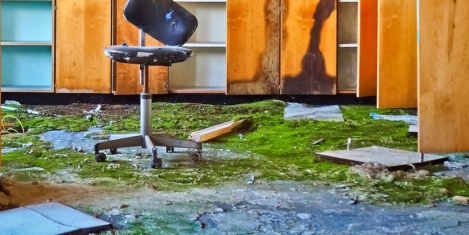
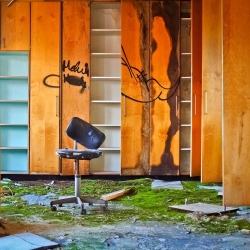 Over the past ten years, reuse of furniture and furnishings has been extremely limited. Most redundant assets have been discarded to landfill. It’s a brutal fact that it is the easy and less expensive option. Many products sent for recycling often end up in landfill or incineration and so still contributing to carbon emissions. As offices plan for
Over the past ten years, reuse of furniture and furnishings has been extremely limited. Most redundant assets have been discarded to landfill. It’s a brutal fact that it is the easy and less expensive option. Many products sent for recycling often end up in landfill or incineration and so still contributing to carbon emissions. As offices plan for 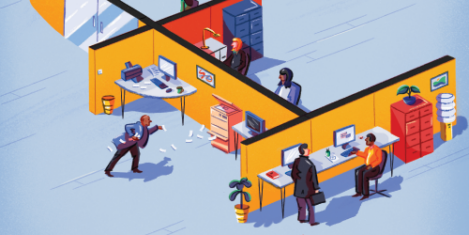
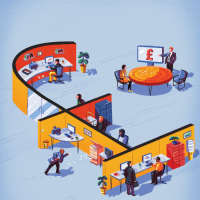 The focus on creating a more sustainable workplace is increasing. Many designers, specifiers, manufacturers, suppliers and, of course, users are pledging their allegiance to the cause. Some are driven by a genuine recognition of the climate crisis whilst others are appreciating that commercially, it’s an essential direction. ‘Zero to landfill’ has been given ‘green bragging rights’ for some time. In reality, due to the significantly lower cost of incineration versus recycling, most material isn’t reclaimed, it is burnt. Whilst ‘energy from waste’ might alleviate some guilt, it is still contributing to pollution.
The focus on creating a more sustainable workplace is increasing. Many designers, specifiers, manufacturers, suppliers and, of course, users are pledging their allegiance to the cause. Some are driven by a genuine recognition of the climate crisis whilst others are appreciating that commercially, it’s an essential direction. ‘Zero to landfill’ has been given ‘green bragging rights’ for some time. In reality, due to the significantly lower cost of incineration versus recycling, most material isn’t reclaimed, it is burnt. Whilst ‘energy from waste’ might alleviate some guilt, it is still contributing to pollution. 
 Many organisations make bold claims about their zero carbon ambitions. Even if they don’t, most have sustainability statements. Yet the environmental impact of office furniture and sophisticated approaches to sustainable office design seem to be way down the ‘pecking order’. During the last year, we have read considerable commentary about the office – starting with its death but moving onto predictions of the ‘new dawn’ with more versatile and healthier workspaces.
Many organisations make bold claims about their zero carbon ambitions. Even if they don’t, most have sustainability statements. Yet the environmental impact of office furniture and sophisticated approaches to sustainable office design seem to be way down the ‘pecking order’. During the last year, we have read considerable commentary about the office – starting with its death but moving onto predictions of the ‘new dawn’ with more versatile and healthier workspaces. 
 The circular economy is the ‘holy grail’. Few people would deny the ambition of keeping resources in use for as long as possible, extracting the maximum value from them, then recovering and regenerating products and materials at the end of each service life. Is this achievable within the furniture and furnishings sector? Many manufacturers and suppliers can justifiably boast impressive ‘green’ credentials, such as manufacturing techniques, the use of innovative and sustainable materials as well as recyclability of products. The production and supply of new furnishings doesn’t address, however, the short and longer term issues relating to sustainability. ‘Cradle to cradle’ is a great concept – but who is responsible?
The circular economy is the ‘holy grail’. Few people would deny the ambition of keeping resources in use for as long as possible, extracting the maximum value from them, then recovering and regenerating products and materials at the end of each service life. Is this achievable within the furniture and furnishings sector? Many manufacturers and suppliers can justifiably boast impressive ‘green’ credentials, such as manufacturing techniques, the use of innovative and sustainable materials as well as recyclability of products. The production and supply of new furnishings doesn’t address, however, the short and longer term issues relating to sustainability. ‘Cradle to cradle’ is a great concept – but who is responsible? 








June 1, 2023
The circular economy is a great opportunity, but it doesn’t add up yet
by Joanna Knight • Comment, Environment, JK, Workplace design